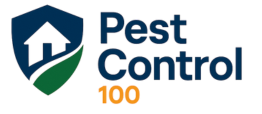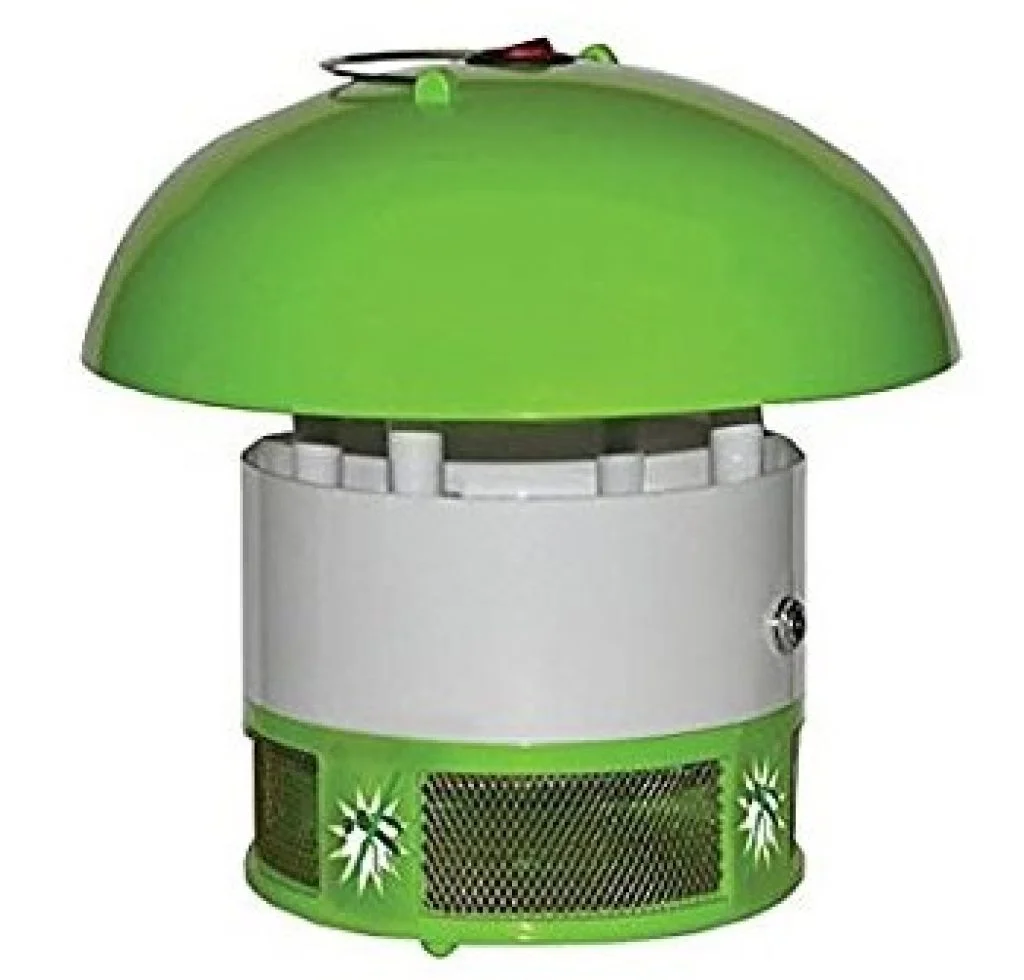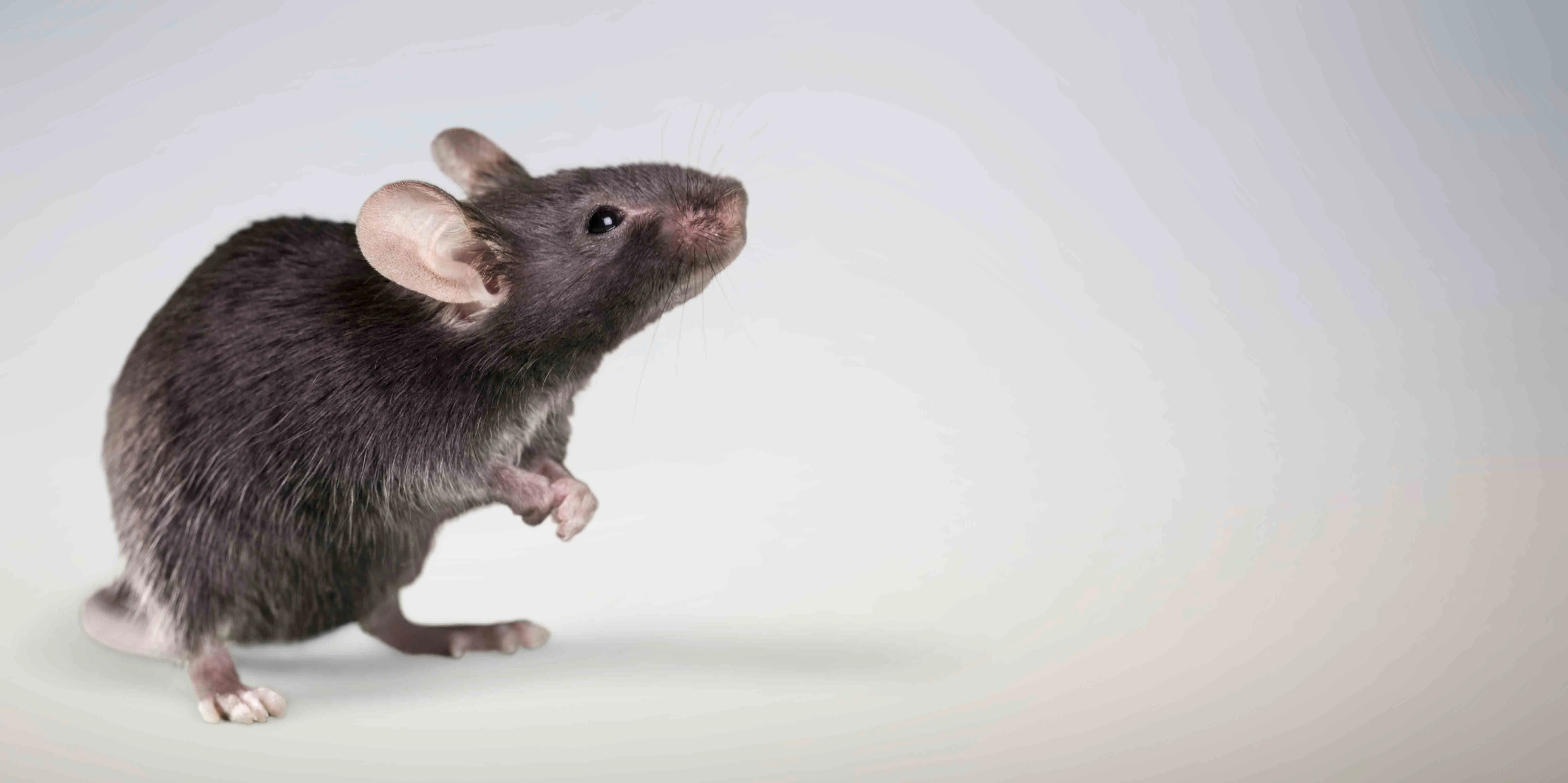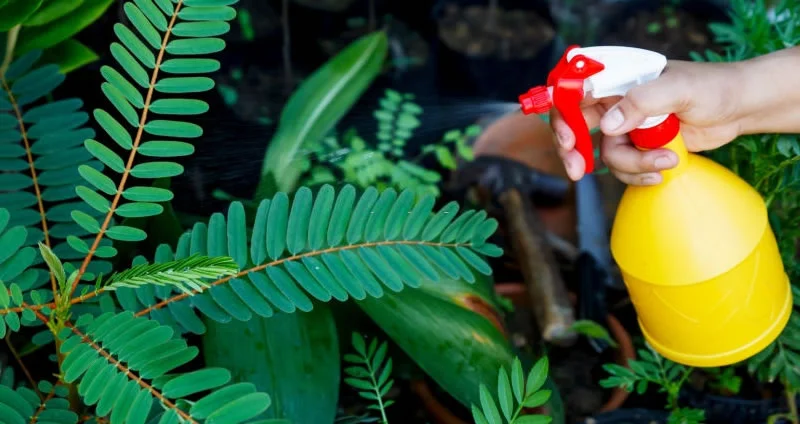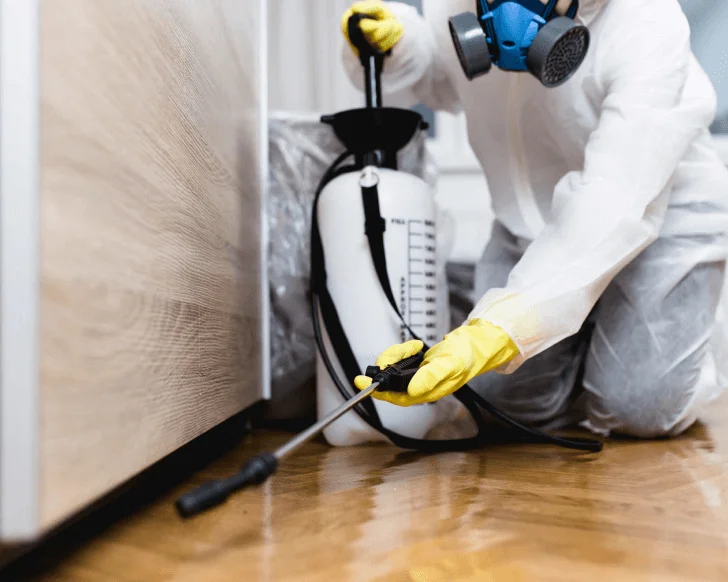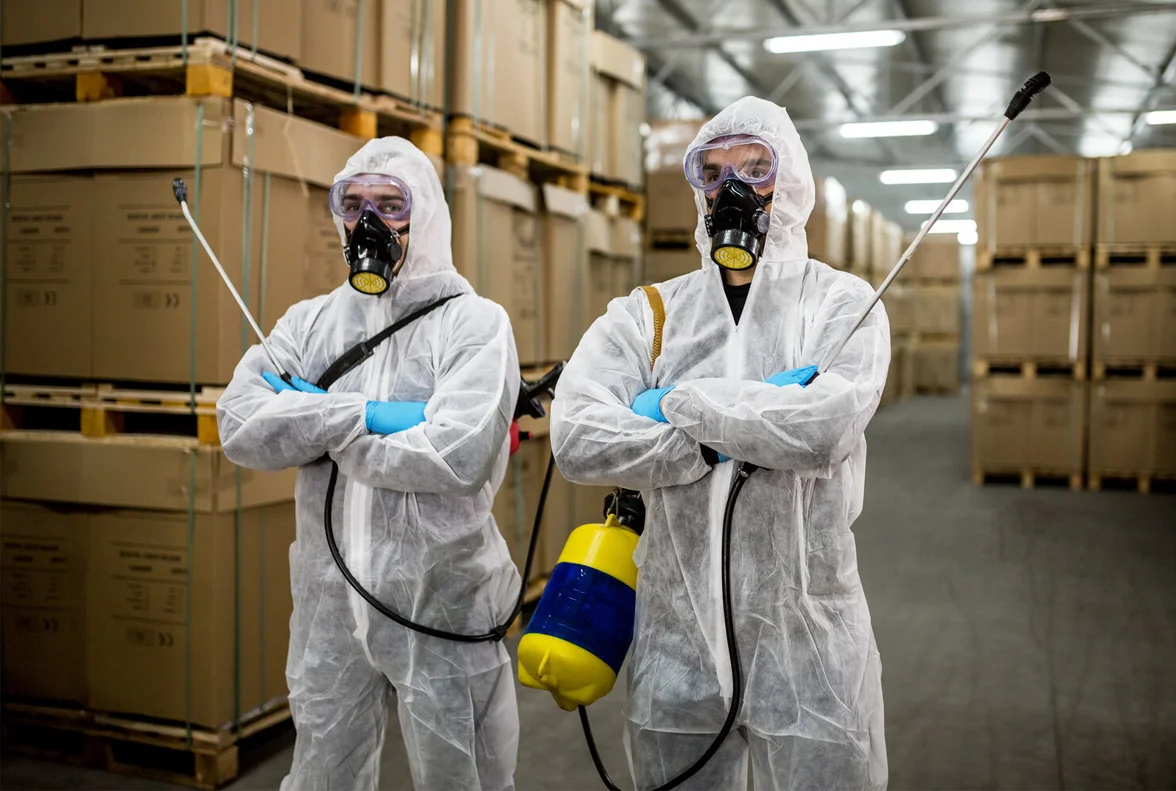From Newport's coastal mansions to Providence's historic neighborhoods, Rhode Island's compact geography creates unique pest management challenges. The state's maritime climate with humid summers and moderately cold winters provides ideal conditions for a variety of pests year-round. Professional pest control in Rhode Island requires specialized knowledge of how the coastal environment, dense urban areas, and surrounding waterways influence pest behavior and habitat. As New England's smallest state, Rhode Island's closely packed communities and diverse ecosystems create perfect conditions for pests to thrive and spread quickly.
Homeowners and businesses throughout Rhode Island face ongoing threats from pest infestations that can damage property, affect health, and disrupt daily life. That's why many Ocean State residents rely on professional exterminators who understand the region's specific challenges. Local experts know that both preventive treatments and rapid response are essential in managing Rhode Island's persistent pest pressures. In this guide, we'll explore common pest issues across Rhode Island, effective control strategies including eco-friendly pest solutions, and why partnering with local pest professionals ensures the most effective protection for your property.
Need immediate pest help? Our Rhode Island team offers
emergency pest control
24/7 and thorough
pest inspections to protect your property.
Contact us for prompt, reliable service!
Pest Control Challenges Specific to Rhode Island
Rhode Island's unique geography and climate create distinctive pest control challenges. Here's why pest control in Rhode Island requires specialized approaches:
-
Coastal environment With over 400 miles of coastline, Rhode Island's coastal communities face unique pest pressures. Salt marsh mosquitoes breed prolifically in coastal wetlands, while moisture-loving pests like carpenter ants thrive in the humid conditions near the shore. Properties in Newport, Narragansett, and other seaside towns often require specialized treatments adapted to withstand salt spray and coastal weather patterns.
-
Historic properties Rhode Island boasts some of America's oldest buildings, with many homes and structures dating back to the 18th and 19th centuries. These historic properties, particularly common in Providence's East Side, Newport, and Bristol, present unique challenges for pest management. Original wood construction, stone foundations, and period-appropriate preservation requirements often necessitate customized, preservation-sensitive pest control approaches that protect both the structure and its historical integrity.
-
Dense urban development As the second most densely populated state in the country, Rhode Island's urban areas like Providence, Pawtucket, and Woonsocket feature tightly packed housing that allows pests to move easily between properties. Rodents and cockroaches can quickly spread through city blocks, making comprehensive neighborhood-level management strategies essential. The high concentration of restaurants and food service establishments in these areas further contributes to urban pest pressures.
-
Abundant water features Named the "Ocean State" for good reason, Rhode Island is characterized by Narragansett Bay, numerous rivers, ponds, and wetlands that create ideal breeding grounds for mosquitoes and provide water sources for wildlife pests. Properties near water bodies like the Providence River, Blackstone River, or any of the state's 100+ freshwater ponds face increased pressure from moisture-dependent pests and wildlife drawn to these water sources.
-
Seasonal tourism Rhode Island's popular summer tourist destinations experience significant seasonal population fluctuations. Vacation properties in Newport, Block Island, and coastal communities may sit vacant during off-seasons, creating opportunities for pest infestations to develop unnoticed. When these properties are reopened for the season, owners often discover established pest problems requiring immediate attention and specialized treatment approaches.
These factors make comprehensive, year-round pest prevention particularly important for Rhode Island property owners. Professional pest management companies familiar with the state's unique challenges can develop customized strategies that address these specific regional concerns while protecting your property throughout all seasons.
Common Pests in Rhode Island
Rhode Island's climate and geography support a variety of persistent pests. Here are the most common invaders that Rhode Island homes and businesses encounter:
Mosquitoes
Mosquito treatment in a Narragansett property
Rhode Island's abundant water features and humid coastal climate create ideal breeding conditions for mosquitoes. Salt marsh mosquitoes plague coastal communities like Newport and Narragansett, while freshwater species thrive near the state's many ponds, rivers, and wetlands. Beyond being a nuisance, these biting insects can transmit diseases like West Nile virus and Eastern Equine Encephalitis, which have been detected in Rhode Island mosquito populations.
Effective mosquito control in Rhode Island requires a comprehensive approach that addresses both adult mosquitoes and their breeding sites. Professional management typically combines treatment of resting areas in vegetation, application of larvicides in standing water that cannot be eliminated, and recommendations for habitat modification to reduce breeding opportunities. For coastal properties, specialized treatments that can withstand salt spray and marine conditions are often necessary to provide lasting protection.
Ticks
Environmentally friendly tick treatment in South County
Rhode Island consistently ranks among the states with the highest incidence of Lyme disease, making tick control a critical health concern. Blacklegged ticks (deer ticks), American dog ticks, and lone star ticks are prevalent throughout the state, with particularly high populations in wooded areas of Washington County and the western portions of Providence County. These parasitic pests can transmit Lyme disease, babesiosis, anaplasmosis, and other serious tick-borne illnesses.
Professional tick management focuses on treating vegetated areas where ticks quest for hosts, creating protective barriers around recreational spaces, and providing recommendations for landscape modifications that reduce tick habitat. For properties adjacent to wooded areas or with extensive landscaping, regular perimeter treatments throughout the active season (typically April through November) provide the most effective protection. Many Rhode Island homeowners combine professional treatments with personal protection strategies for comprehensive tick-borne disease prevention.
Rodents
Rodent exclusion work on a Providence property
Rhode Island's dense urban areas and historic properties create perfect environments for rodent infestations. Norway rats and house mice are particularly problematic in cities like Providence, Pawtucket, and Woonsocket, while white-footed mice and deer mice more commonly affect suburban and rural properties. In coastal communities, Norway rats frequently inhabit areas near harbors, marinas, and restaurant districts.
Effective rodent control in Rhode Island typically involves a comprehensive approach combining exclusion work to seal entry points, habitat modification to eliminate harborage areas, targeted baiting or trapping, and ongoing monitoring. Rhode Island's older homes, particularly those with stone foundations or crawl spaces, often require specialized exclusion techniques to prevent rodent entry. For urban properties, coordinated community-level management strategies sometimes provide the most effective long-term control, as rodents can easily travel between adjacent buildings.
Carpenter Ants
Rhode Island's moisture-rich environment makes carpenter ants one of the state's most destructive wood-damaging pests. Unlike termites, carpenter ants don't eat wood but excavate galleries in moisture-damaged wood to create nesting sites. The state's coastal humidity, abundant rainfall, and older housing stock create ideal conditions for these pests, particularly in Providence's historic districts, East Greenwich, Barrington, and waterfront properties throughout the state.
Professional carpenter ant management begins with a thorough inspection to locate nest sites, which are often hidden in wall voids, attic spaces, or exterior areas like porches and decks. Treatment typically combines direct nest applications, perimeter protection, and targeted baiting, along with recommendations to address moisture issues that attract these pests. For Rhode Island's historic homes, specialized techniques that protect architectural features while effectively eliminating infestations are particularly important.
Bed Bugs
Rhode Island's position as a tourist destination and its high population density create conditions where bed bug infestations can spread rapidly. These parasitic pests are particularly problematic in urban areas like Providence and in coastal communities with high rates of short-term rentals and tourism. College towns like Kingston also experience periodic bed bug issues, especially during move-in periods when students return from travel.
Effective bed bug control requires specialized knowledge and equipment, as these resilient pests can hide in tiny cracks and crevices and have developed resistance to many conventional treatments. Professional management typically includes thorough inspection using specialized tools, targeted treatment of affected areas, and follow-up visits to address any surviving eggs. For heavily infested properties, whole-room heat treatments that reach all hiding places without chemical residues have become increasingly popular in Rhode Island.
Eco-Friendly Pest Control Approaches
Rhode Island's commitment to environmental stewardship, particularly protecting Narragansett Bay and the state's coastal ecosystems, has increased demand for eco-friendly pest solutions. Modern integrated pest management (IPM) approaches minimize environmental impact while effectively addressing pest problems. This comprehensive strategy combines inspection, monitoring, habitat modification, exclusion, biological controls, and targeted applications of reduced-risk products only when necessary.
Many Rhode Island pest control providers now offer green service options that prioritize environmental protection while effectively managing pests. These programs often utilize botanical insecticides derived from plant oils, microbial products that target specific pests, and non-toxic mechanical controls like traps and exclusion techniques. For properties near sensitive watersheds, salt marshes, or protected coastal areas, these eco-friendly approaches help maintain effective pest control while protecting Rhode Island's precious natural resources.
Narragansett Bay Protection
Our Rhode Island pest specialists are trained in bay-friendly practices that protect the state's most important natural resource and the wildlife that depends on it while still providing effective pest management for your property.
Below is a comparison of different eco-friendly pest management approaches commonly used in Rhode Island:
| Approach |
Benefits |
Best Applications |
| Habitat Modification |
Reduces conditions that attract pests; provides sustainable long-term solutions; decreases need for product applications.
|
Mosquito management near water features, rodent prevention in urban areas, carpenter ant prevention around homes.
|
| Exclusion Techniques |
Physically prevents pest entry; offers long-term protection; eliminates need for repeat treatments; preserves historic structures.
|
Rodent control in historic properties, winterizing vacation homes against pest intrusion, preventing wildlife entry in suburban areas.
|
| Botanical Products |
Derived from plant oils; generally lower mammalian toxicity; breaks down rapidly in the environment; often effective against resistant pests.
|
Perimeter treatments near sensitive waterways, tick control in residential landscapes, spot treatments for crawling insects.
|
| Biological Controls |
Uses natural enemies or microbial agents; highly targeted to specific pests; minimal impact on beneficial organisms.
|
Mosquito larvicide in standing water, garden pest management, control of invasive species in natural areas.
|
| Reduced-Risk Baiting |
Minimal product use; targets entire colonies rather than individuals; limited environmental exposure; effective against social insects.
|
Ant management in homes with children and pets, termite control in sensitive environments, rodent control in enclosed stations.
|
In Rhode Island's diverse environments—from coastal Newport to urban Providence to rural western towns—these eco-friendly approaches can be tailored to address specific pest challenges while protecting the state's natural resources. Professional pest management companies typically begin with a thorough inspection to identify the most environmentally appropriate solutions for each unique situation.
Residential vs Commercial Pest Control
Residential Pest Protection
Rhode Island homes face diverse pest challenges based on their location, architecture, and surrounding environment. Residential pest protection programs typically focus on creating defensive barriers while ensuring treatments are safe for families, pets, and the environment. Many Rhode Islanders opt for quarterly service plans, with additional attention during seasonal pest emergencies like summer mosquito and tick season or fall rodent intrusions.
From historic colonial homes in Providence's College Hill to modern waterfront properties in Narragansett, residential service begins with a comprehensive inspection that identifies current pest issues, potential vulnerabilities, and conditions that might attract pests. Treatment plans are then customized for each property, taking into account specific construction features, proximity to water, landscape characteristics, and seasonal occupancy patterns. For vacation properties in coastal communities and Block Island, specialized programs address the unique challenges of seasonal occupancy to prevent pests from establishing during vacant periods.
Commercial Pest Control
Rhode Island businesses require specialized pest management that addresses industry-specific needs while meeting regulatory requirements. Commercial pest control programs are designed to protect reputation, prevent product contamination, and ensure compliance with health codes and industry standards. From Newport's high-end restaurants and hotels to Providence's healthcare facilities to Quonset Point's industrial operations, each business sector faces distinct pest management challenges.
Commercial service typically involves more comprehensive documentation, including detailed service reports, monitoring device placement maps, and trend analysis to identify and address emerging issues before they become problems. Many Rhode Island businesses implement Integrated Pest Management programs that emphasize prevention through improved sanitation, exclusion, and structural modifications, with targeted treatments only when necessary. This comprehensive approach is particularly important for food processing facilities, healthcare providers, and hospitality businesses facing rigorous regulatory oversight and quality assurance requirements.
From residential pest protection plans to customized
commercial pest control solutions, we deliver expert services throughout Rhode Island –
contact us today to protect your property!
Why Choose Local Rhode Island Pest Control Experts?
Working with pest control professionals who understand Rhode Island's unique challenges offers significant advantages. Here's why partnering with local experts provides better results for your home or business:
-
Local ecosystem knowledge Rhode Island's diverse environments—from coastal wetlands to urban centers to suburban woodlands—create distinctive pest pressures that local experts understand intimately. They recognize how Narragansett Bay influences pest activity, how urban wildlife interacts with Providence neighborhoods, and how seasonal tourism affects pest patterns in Newport and South County.
-
Weather adaptation Rhode Island's weather patterns, from summer humidity to nor'easter storms to winter freezes, significantly impact pest behavior and treatment effectiveness. Local professionals calibrate their approaches to these conditions, knowing when to schedule preventive treatments before significant weather events and how to adapt service protocols to seasonal patterns.
-
Historic property expertise With one of America's highest concentrations of historic buildings, Rhode Island demands specialized pest management approaches that protect architectural integrity. Local experts understand how to effectively treat distinctive features like post-and-beam construction, plaster walls, stone foundations, and period-appropriate materials without compromising historical value or structural integrity.
-
Regulatory compliance Local professionals stay current with Rhode Island's environmental regulations, particularly those protecting coastal wetlands, waterways, and sensitive ecosystems. This ensures treatments meet state Department of Environmental Management requirements and comply with local ordinances, particularly important near protected areas like the Coastal Resources Management Council jurisdiction.
-
Rapid response In Rhode Island's compact geography, local providers can quickly respond to urgent situations like stinging insect nests, rodent intrusions, or bed bug discoveries. When you discover yellow jackets building a nest by your door or mice in your kitchen, you need help quickly from someone familiar with your area who can provide emergency pest control when situations demand immediate attention.
By choosing local professional exterminators who understand Rhode Island's unique conditions, you get more effective, responsive service tailored to your specific pest challenges and property needs—all from providers invested in preserving the quality of life in their own communities.
Don't let pests compromise your Rhode Island property. Our local experts deliver effective pest control in Rhode Island with customized solutions –
schedule your inspection today!
Top Cities for Pest Control in Rhode Island
Despite its small size, Rhode Island's diverse communities face varying pest challenges based on their geography, development patterns, and local environments. Here are some key Rhode Island cities and towns and the unique pest management challenges they face:
Providence
As Rhode Island's capital and largest city, Providence faces classic urban pest challenges magnified by its historic architecture and riverfront location. The city's older neighborhoods like College Hill, Federal Hill, and the East Side feature historic homes where rodents, carpenter ants, and occasional termite issues are common. Urban wildlife conflicts with raccoons and squirrels frequently occur in residential areas near parks and green spaces. The revitalized downtown with its restaurant scene and waterfront development has created new urban pest management challenges, requiring specialized approaches for commercial properties.
Newport
Newport's unique combination of historic mansions, coastal environment, and tourism-driven economy creates distinctive pest management needs. The city's famous Gilded Age estates and colonial-era homes require preservation-sensitive approaches to control wood-destroying organisms like powder post beetles and carpenter ants. Waterfront properties face pressure from moisture pests and salt marsh mosquitoes. The seasonal influx of tourists and short-term rentals creates conditions where bed bugs can spread rapidly, demanding vigilant monitoring and swift intervention strategies from hotel operators and property managers.
Seasonal Pest Guide for Rhode Island
Spring (March-May)
- Carpenter ants emerge and become active
- Tick populations begin seeking hosts
- Termite swarms appear on warm days
Recommendation: Schedule perimeter treatments and implement tick prevention measures before outdoor activity increases.
Summer (June-August)
- Mosquitoes reach peak activity levels
- Stinging insects build and expand nests
- Bed bug issues increase with vacation travel
Recommendation: Maintain regular mosquito treatments and inspect for wasp nests around structures.
Fall (September-November)
- Rodents seek indoor shelter from cooling temperatures
- Overwintering pests like stink bugs invade homes
- Spider activity becomes more noticeable indoors
Recommendation: Seal entry points and implement rodent prevention before winter weather arrives.
Winter (December-February)
- Rodent activity intensifies indoors
- Occasional cockroach issues in heated buildings
- Stored product pests emerge in pantries
Recommendation: Focus on indoor pest management and prepare vacation homes for spring reopening.
What Our Rhode Island Clients Say
"Our historic East Side home in Providence had persistent carpenter ant issues that previous companies couldn't resolve. Their thorough inspection found the parent colony in a damp area near our foundation, and their comprehensive treatment plan eliminated the problem completely. Their knowledge of working with older homes was impressive."
- Elizabeth M., Providence
★★★★★
"After finding ticks in our yard and on our dog repeatedly, we were concerned about Lyme disease risks for our family. Their tick management program has made an incredible difference—we haven't found a single tick on our property since treatment began. Now we can enjoy our South Kingstown backyard without constant worry."
- Thomas R., South Kingstown
★★★★★
"As a restaurant owner in Newport's tourist district, pest prevention is critical to our reputation. Their discreet, thorough commercial service has kept our kitchen completely pest-free through three busy summer seasons. The detailed documentation they provide has been invaluable during health inspections."
- Maria C., Newport
★★★★★
Frequently Asked Questions
How often should Rhode Island homeowners schedule pest control services?
Most Rhode Island homes benefit from quarterly pest control service to address our state's seasonal pest cycles. This typically includes spring perimeter protection as insects become active, summer treatments focusing on mosquitoes and ticks, fall services to prevent rodent entry, and winter follow-up for interior issues. Properties in coastal areas often need more frequent mosquito treatments during summer months, while homes near wooded areas might require additional tick management. For vacation properties that sit vacant for extended periods, specialized schedules that coincide with opening and closing seasons provide the most effective protection. During your initial inspection, our technicians will recommend an optimal service schedule based on your property's specific location, construction style, surrounding environment, and pest history.
What makes tick control so important in Rhode Island compared to other states?
Rhode Island consistently ranks among the top states for Lyme disease incidence, with Washington County having particularly high rates. Several factors contribute to this elevated risk: our state's abundant wooded areas and coastal shrublands provide ideal tick habitat; our high population density means more human-tick interactions; our significant deer and small mammal populations serve as hosts for various tick life stages; and our outdoor-focused lifestyle increases exposure, especially during summer months. Additionally, Rhode Island is home to multiple tick species—blacklegged (deer) ticks, American dog ticks, and increasingly, lone star ticks—each capable of transmitting different diseases. Beyond Lyme disease, Rhode Islanders face risks from babesiosis, anaplasmosis, and recently identified threats like Powassan virus. Professional tick management combines targeted yard treatments with habitat modification recommendations to significantly reduce tick populations and create safer outdoor spaces for families and pets.
Are your pest control methods safe for waterfront properties near Narragansett Bay?
Absolutely. We understand the ecological importance of Narragansett Bay and Rhode Island's coastal waterways, and our treatment protocols are specifically designed to protect these sensitive environments. For waterfront properties, we utilize specialized application methods that prevent drift and runoff, keeping treatments precisely where they're needed. Many of our products are specifically selected for their low environmental impact and rapid breakdown, minimizing potential effects on aquatic ecosystems. Our technicians receive specific training in watershed protection practices and follow all Rhode Island Department of Environmental Management guidelines for applications near water bodies. Additionally, our Integrated Pest Management approach for waterfront properties emphasizes non-chemical control methods like exclusion, habitat modification, and mechanical controls whenever possible, using reduced-risk product applications only when necessary and with appropriate buffer zones from the water's edge.
